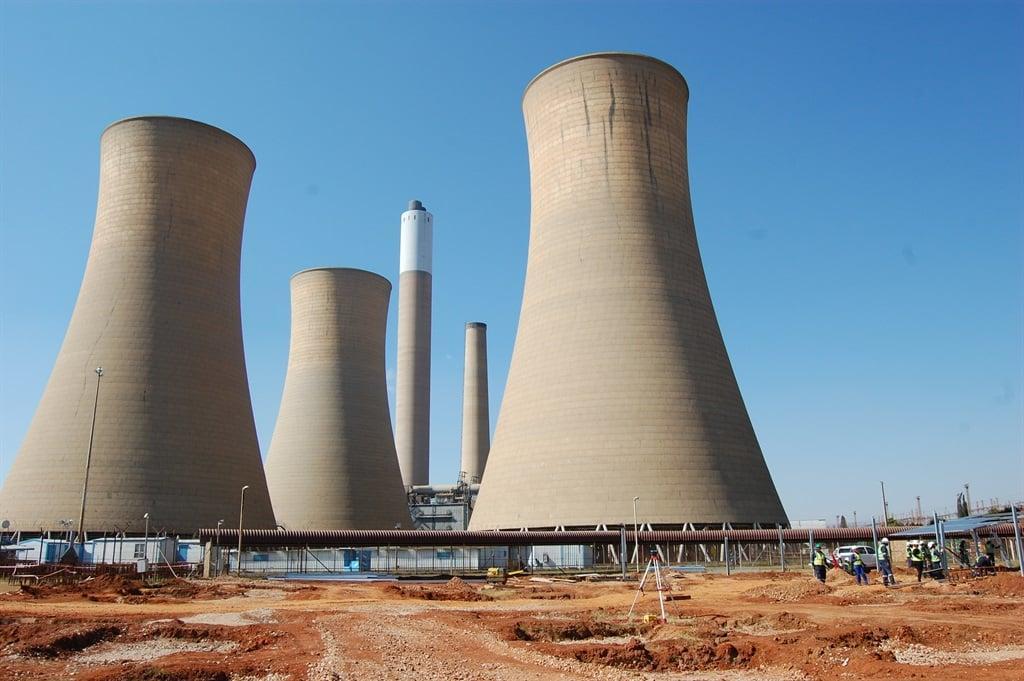Africa-Press – South-Africa. An interim report from the Presidential Climate Commission (PCC) has said the decommissioning of the Komati power plant in Mpumalanga had countless flaws that negatively impacted surrounding communities.
After first being commissioned in 1961, the coal-fired power plant reached the end of its life in October last year when Eskom decommissioned the last unit.
Speaking at the PCC meeting on Friday, member of the commission and climate justice advocate Melissa Fourie said Eskom’s plans to decommission the plant started too late, with the power utility needing to ensure that new jobs and skills were available to the surrounding community at the time of the plant’s closure.
“Engagements before the shutdown fell short of being inclusive and participatory […] Communities and groups should be informed of the decommission years in advance. New jobs and skills training should be made available before the shutdown,” said Fourie.
The report also raised concerns about the community development. Commission members said the money had not been invested adequately in communities.
Fourie said: “Areas around the plant had been underserved in terms of services. Community members said they would benefit from a high school and clinic.”
The PCC had engaged with community members of Komati Village. The community members had indicated that there are many empty buildings and lots that are privately owned and, therefore, cannot be redeveloped.
“Members also noted that the village lacks a health clinic, a high school, a library, and there is only one supermarket to cater to the entire village. Consequently, community members and older students must travel elsewhere to access healthcare and education,” the report read.
Komati is seen as a blueprint for transitioning to renewable energy. The transition project is largely funded through a R9 billion loan agreement with the World Bank to repower the site with solar PV, wind, and battery energy storage.
However, concerns have been raised about the impact of the plant’s transition on surrounding communities.
Mineral Resources and Energy Minister Gwede Mantashe previously said its transition to renewables was not “just” as a result of the significant job losses.
At the time of closure, 236 full-time Eskom employees worked at Komati, along with an additional 534 contract employees.
Currently, Komati workers have already been deployed to other Eskom sites with only 159 workers are being retained to support activities like ash management.
News24 previously reported that the decommissioning of the power station was felt by surrounding communities as people were forced to waive their CVs in the air, and businesses lost revenue.
According to Bloomberg, a study found no government funding has been provided to help workers and communities fund alternative livelihoods within the Mpumalanga areas ahead of coal plant closures in 2030.
The province which accounts for 83% of national coal production, will lose 48 500 jobs at power plants and the mines, according to the study. Twelve of Eskom’s power stations are located in the province.
Meanwhile, Eskom’s board has also raised concerns about the impact of the decomissioning of power plants and just transition as the country struggles with power cuts.
Energy crisis
Speaking at the meeting, Eskom board chairperson Mpho Makwana said there were multiple concerns “keeping the board up at night”, including the repurposing of all coal plants that could result in significant losses in power.
“What’s keep us up at night as the Eskom board? We had a 1 000 MW installed capacity at Komati. But post-repurposing, you are looking at 220 MW for solar and wind, excluding cooling towers. In terms of megawatts, you had had the transition but are 780 MW short in a country battling for energy availability factor,” he said.
“If you look at Eskom’s power strategy and JET Plan, as you repurpose and recommission, you could lose 8 000 MW overall once you had done five or six of these power stations,” he said.
Source: news24
For More News And Analysis About South-Africa Follow Africa-Press






